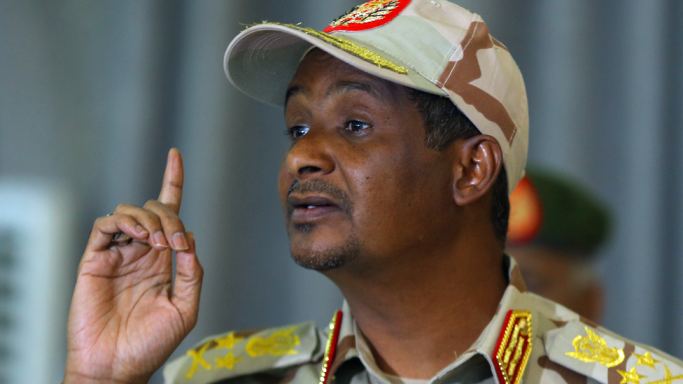RSF announces parallel government as war in Sudan enters third year

The RSF leader, Mohamed Hamdan “Hemedti” Dagalo, made the announcement on Telegram, saying his group was "building the only realistic future for Sudan."
Sudan’s Rapid Support Forces (RSF) have announced the formation of a rival government, deepening the crisis in a country already torn apart by two years of war between the paramilitary group and the national army.
The RSF leader, Mohamed Hamdan “Hemedti” Dagalo, made the announcement on Telegram, saying his group was "building the only realistic future for Sudan."
He added that their government would provide basic services such as healthcare and education, not only in RSF-held areas but across the entire country.
"We do not seek domination, but unity. We believe that no tribe, region, or religion holds a monopoly over Sudanese identity," Hemedti stated.
He also said the RSF was building a “state of law” and not a country ruled by individuals.
The announcement came as international leaders gathered in London for a high-level conference marking two years since the outbreak of war in Sudan.
At the meeting, UK Foreign Secretary David Lammy called for peace and warned of the devastating toll the conflict has taken on civilians.
"Many have given up on Sudan – that is wrong – it’s morally wrong when we see so many civilians beheaded, infants as young as one subjected to sexual violence, more people facing famine than anywhere else in the world... We simply cannot look away," Lammy said.
He also announced £120 million ( Sh20.59 billion) in new UK aid for food and medical relief.
While talks for peace continue, fighting on the ground has not stopped.
The Sudanese army said it had bombed RSF positions near the city of el-Fasher, in North Darfur, where hundreds of thousands of people had sought shelter.
The attacks forced many to flee again, with tens of thousands escaping the Zamzam refugee camp.
According to medical charity Médecins Sans Frontières (MSF), the fleeing civilians walked about 70 kilometers to the town of Tawila.
Many arrived extremely dehydrated, and reports indicate that some children died from thirst along the way.
The United Nations says more than 400 people have been killed in recent RSF attacks, citing "credible sources".
Both sides – the army and the RSF – have been accused of war crimes, including genocide and widespread sexual violence.
Since the war began on 15 April 2023, over 150,000 people have been killed and more than 12 million displaced, making it the world's largest humanitarian crisis.
The situation is especially dire in camps around el-Fasher, where more than 700,000 people are now facing conditions described as close to famine.
Humanitarian agencies have warned that ongoing violence, roadblocks, and insecurity are preventing the delivery of life-saving aid to many of those in need.
The United Nations has also raised concerns about the impact of the conflict on access to food, water, and medical supplies.
During the London meeting, world leaders urged both sides to agree to an immediate and lasting ceasefire.
However, the African Union said it will not accept the partition of Sudan between the RSF and the national army.
Hemedti and the army chief, Gen Abdel Fattah al-Burhan, have been locked in a violent power struggle since last year, with no signs of resolution.
The RSF's move to form a rival government appears to further complicate the situation, as it challenges the army’s authority and creates the possibility of a long-term split in control.
The war has created deep divisions and displaced millions both inside Sudan and across its borders.
